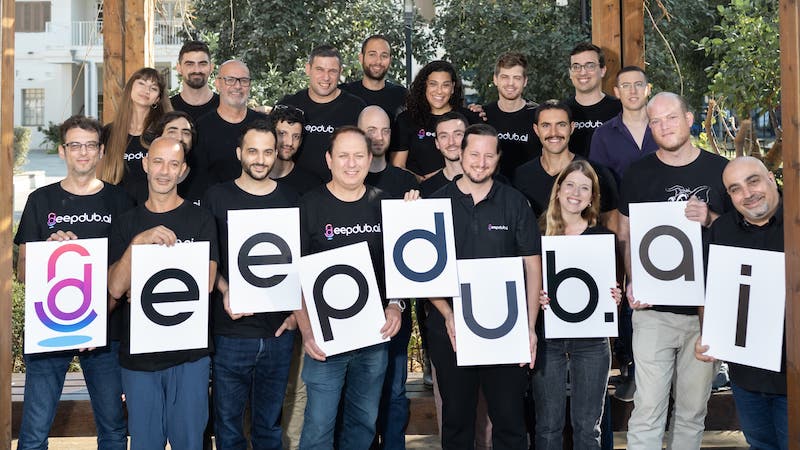
The Israeli start-up Deepdub uses artificial intelligence to allow actors and presenters to speak in other languages. But: is AI now making thousands of voice actors unemployed?
For people in Germany it is almost normal for actors in series and films to speak German – even if they originally come from another country. Voice actors make it possible. But things are different in many other countries.
In Poland, for example, a single male voice translates the entire film while the original sound continues to play in the background. Other countries only offer viewers subtitles. The Israeli start-up Deepdub now wants to change that.
Deepdub: Artificial intelligence replaces voice actors
The company takes over the work of the voice actors and transforms the original voices into any number of languages with the help of artificial intelligence. A video shows how this works. In this, the start-up shows an excerpt from a motorcycle show.
“Deepdub bridges the language barrier and cultural divide of entertainment experiences with high-quality localization at the click of a mouse,” it says. “Using advanced deep learning, Deepdub provides unparalleled dubbing services from globalizing and localizing speech to overlaying new accents and preserving original voices in different languages.”
You can also see how the language changes from English to German, Spanish or French with just one click. “We fit into the post-production process and take care of all localization needs with a faster turnaround time and at a fraction of the cost of traditional dubbing services,” the statement said.
Is artificial intelligence stealing the work of voice actors?
The artificial intelligence used by the founding brothers Nir and Ofir Krakowski, in combination with deep learning technology, learns and studies the original voice of the actors, as well as their style and the characteristic properties when speaking, in order to then reproduce them. After that, the platform converts the original sound into the desired language. This is done using what is known as Natural Language Processing.
Anyone who says that AI could never replace a real human voice will be taught otherwise by the Krakowski brothers. With films, you have to support a much wider range of emotions, different characters and situations. The deepdub technology would even take into account the vocal difference of a person speaking while eating – as well as screaming, whispering and other characteristics.
Other companies also want to offer synchronization services
However, the investor funds that Deepdub has been able to collect so far show that the concern about the profession of voice actors is not too great at the moment Handelsblatt a total of $26 million. However, according to the founders, the reactions of the film and television industry have been overwhelming.
Deepdub currently offers its service in 30 languages. The brothers want to double this number by the end of the year. The translation process for a feature film project currently takes up to eight weeks. The goal is two weeks.
However, Deepdub is not the only company offering this type of service. The Milan start-up Voiseed has also developed a virtual speech machine that makes it possible to produce voices in other languages. Companies from the USA and Dubai are also trying out a similar technology.
Also interesting:
Source: https://www.basicthinking.de/blog/2023/07/19/deepdub-kuenstliche-intelligenz-synchronsprecher/


